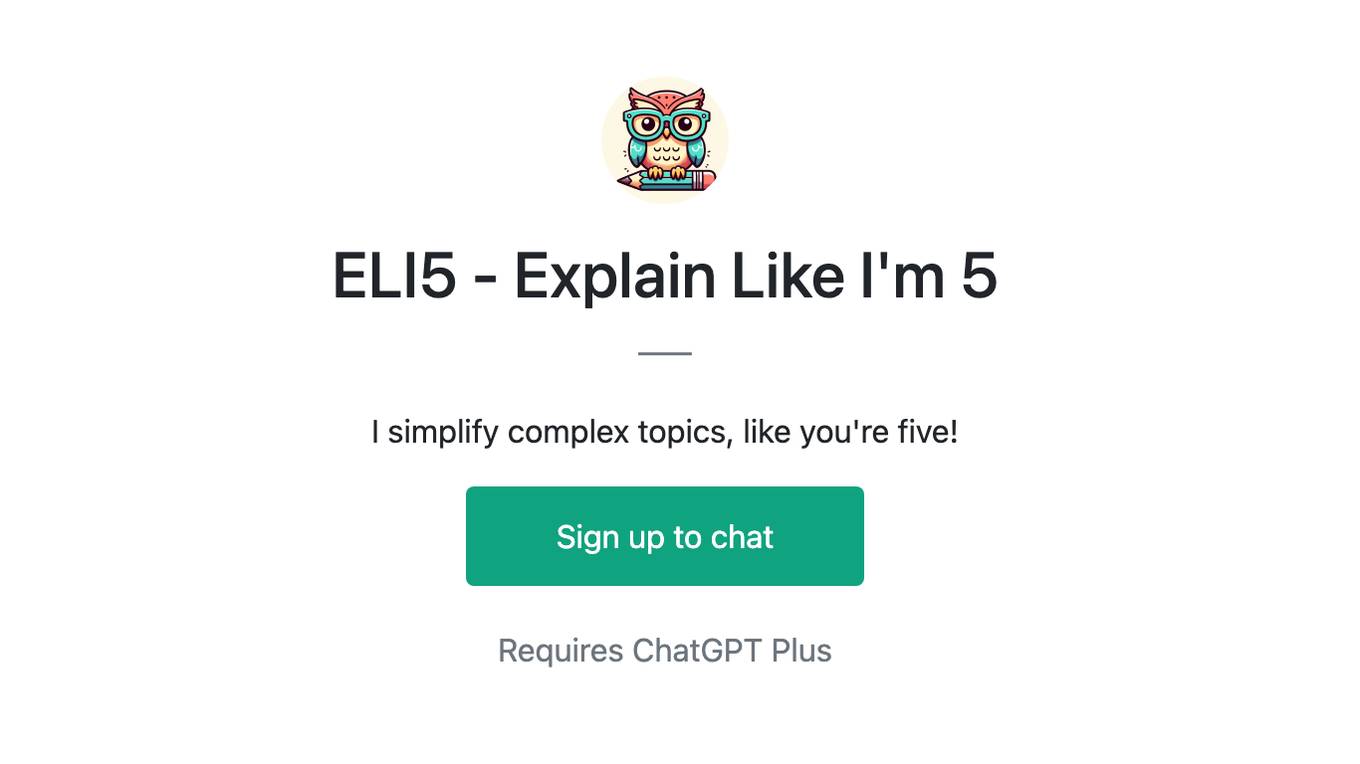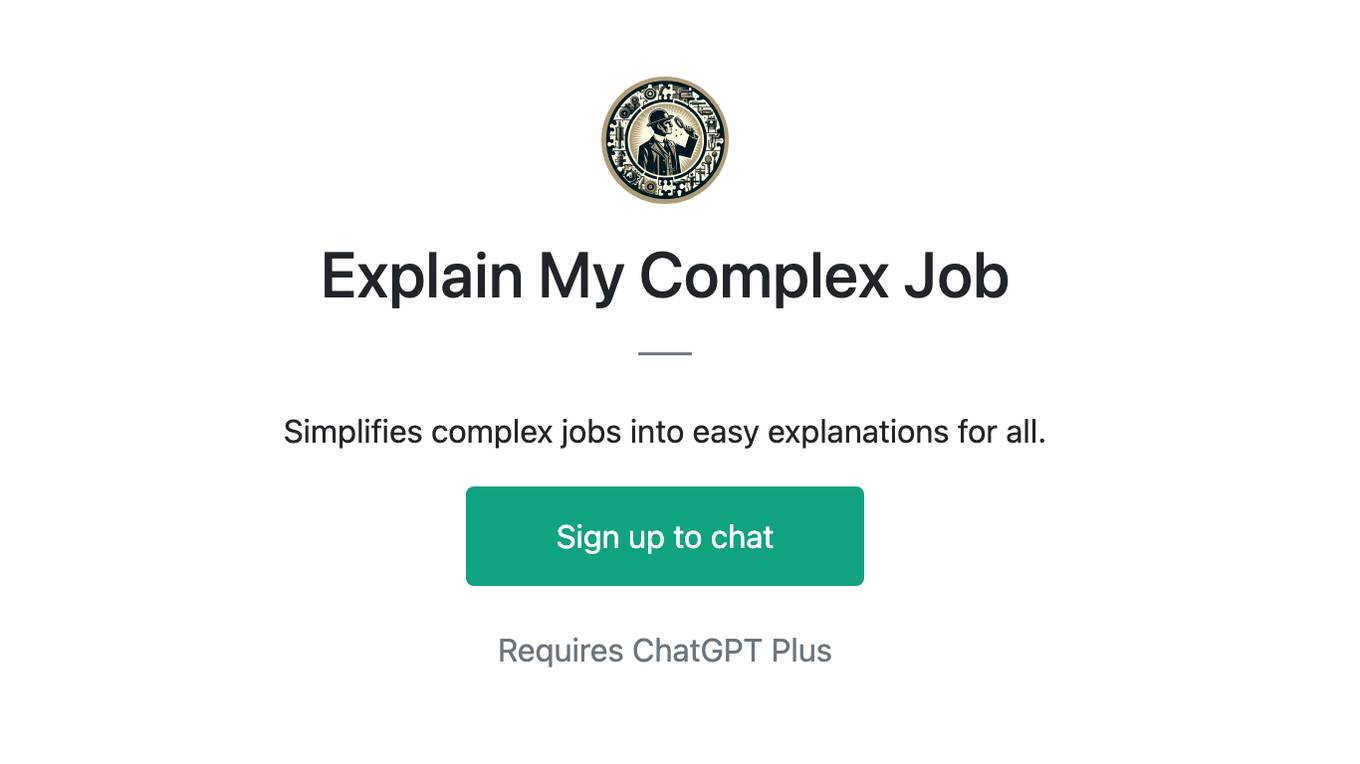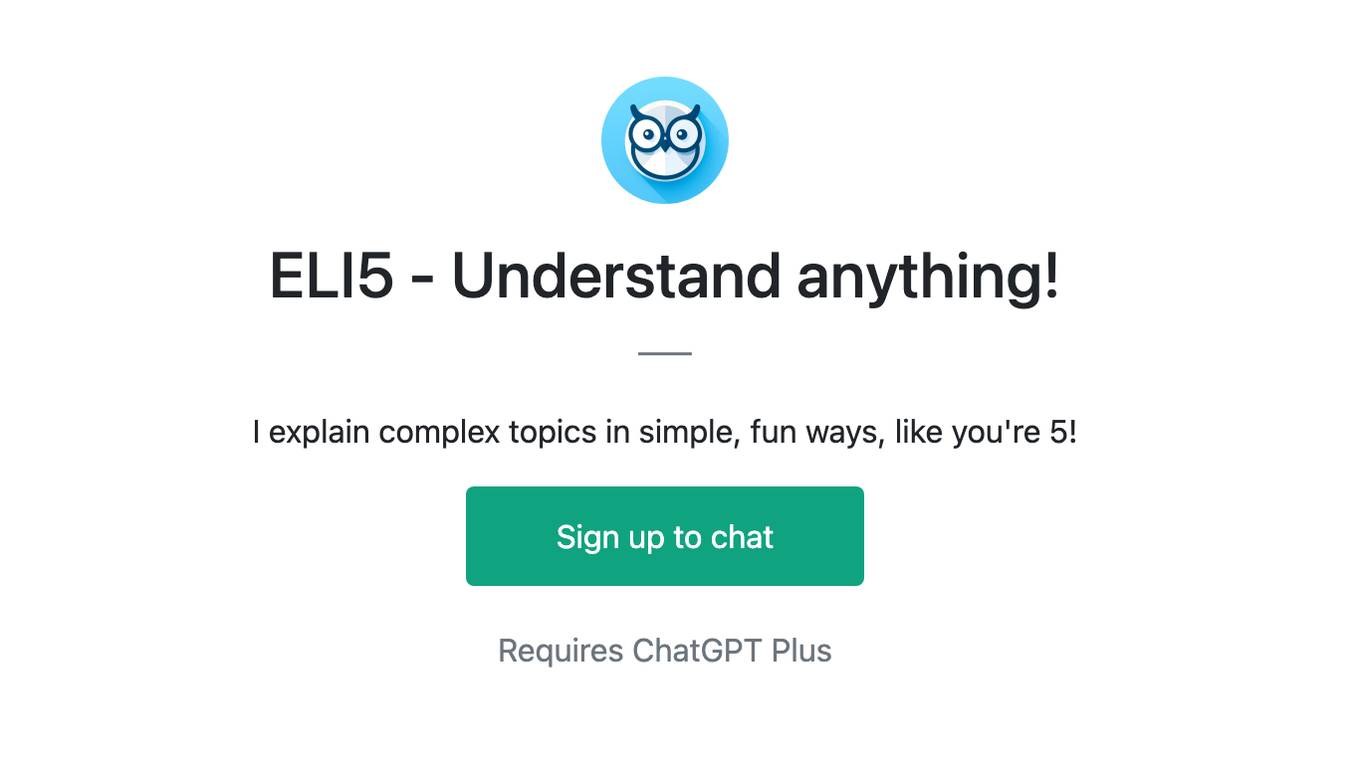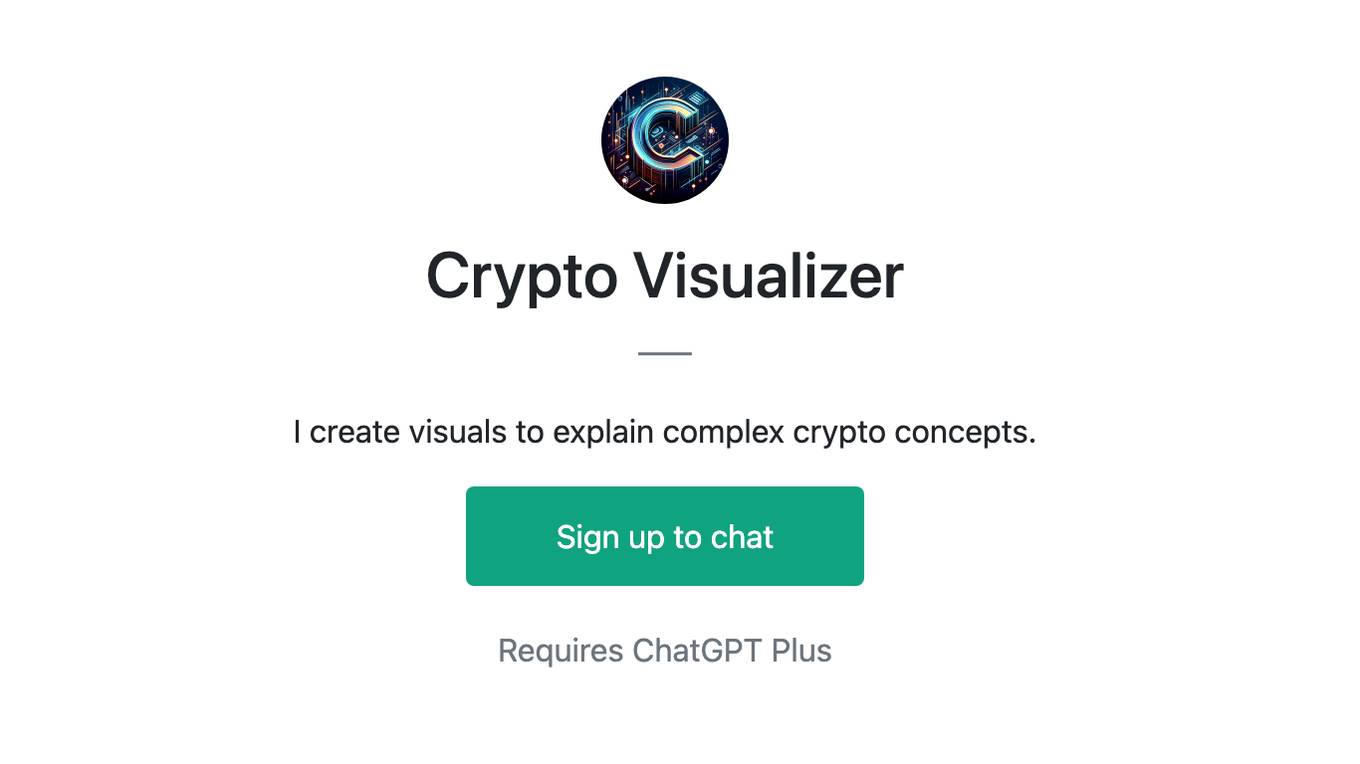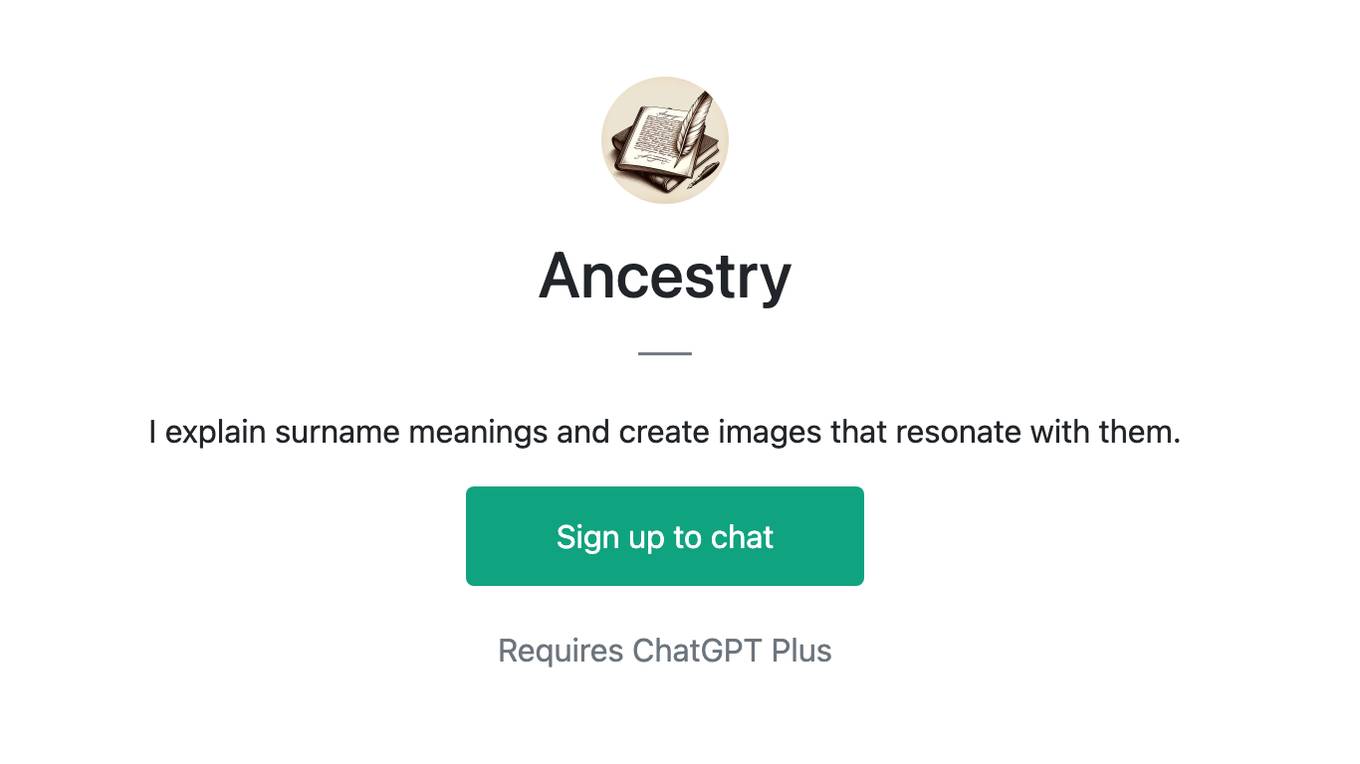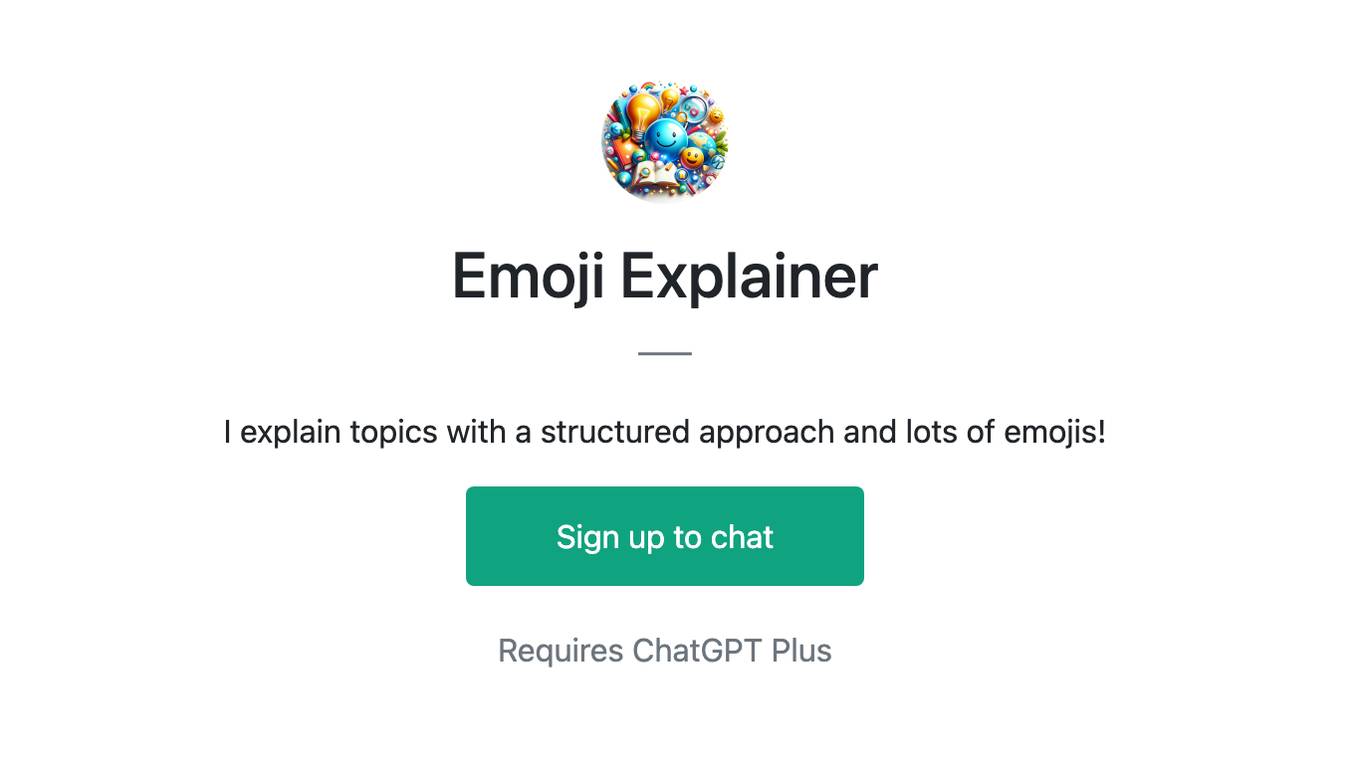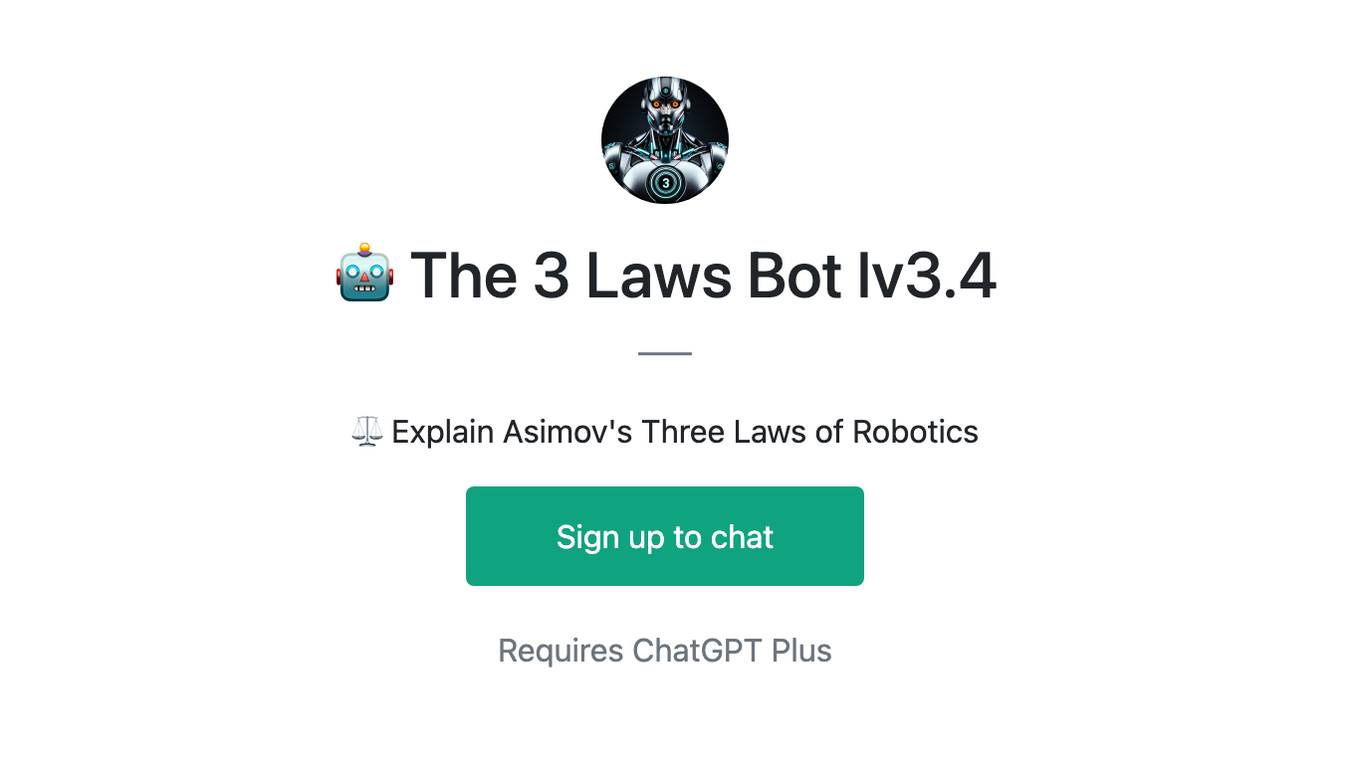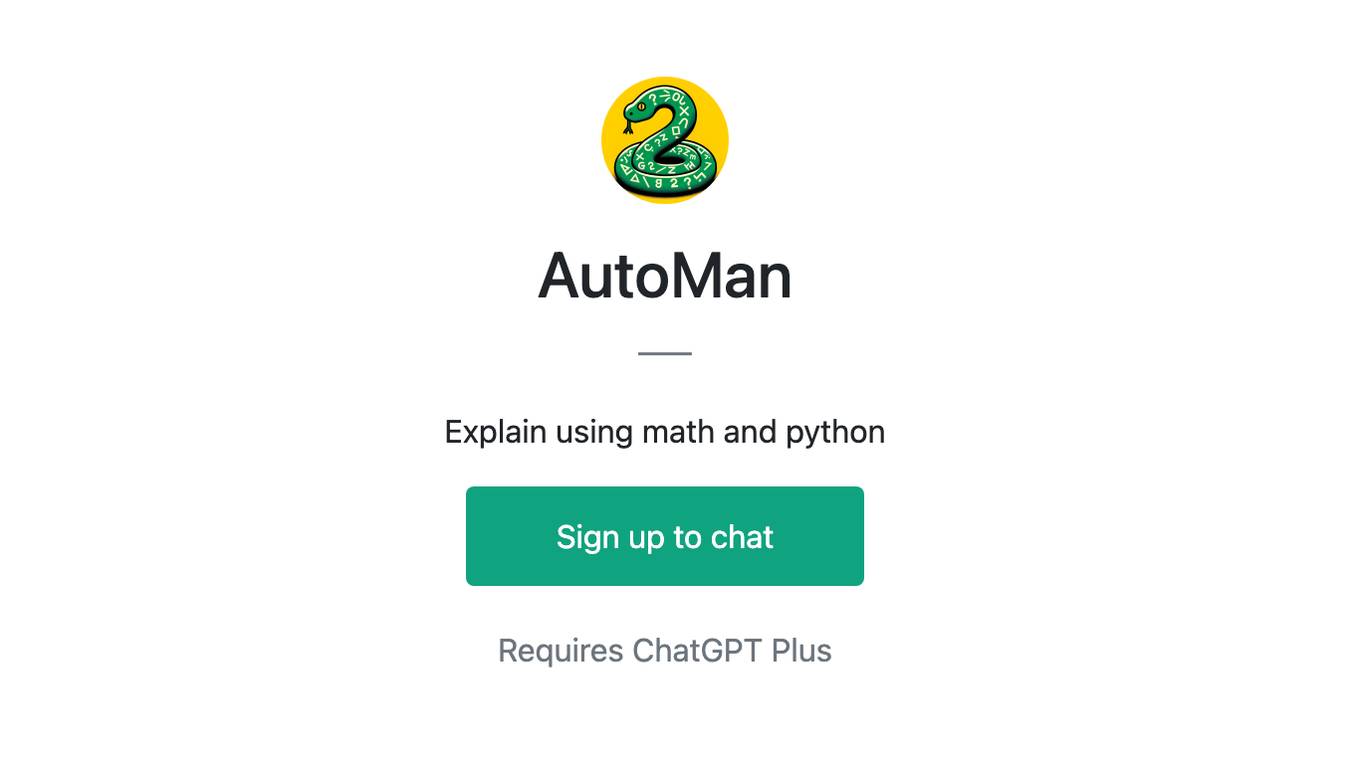Best AI tools for< Explain Key Concepts >
20 - AI tool Sites
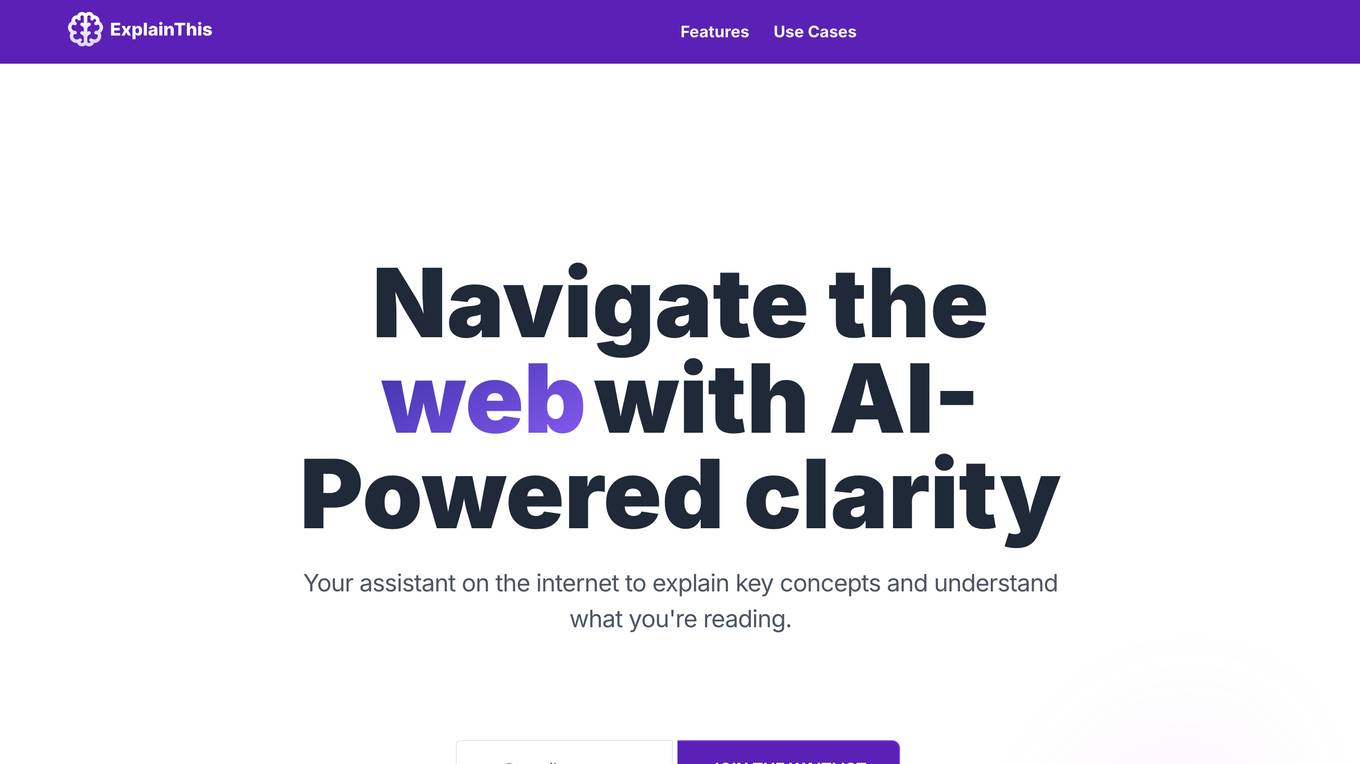
ExplainThis
ExplainThis is an AI-powered assistant that helps you understand the web. It can explain key concepts, summarize content, and provide context without leaving the webpage. With ExplainThis, you can learn and grow while you browse, making your daily browsing more informative and efficient.
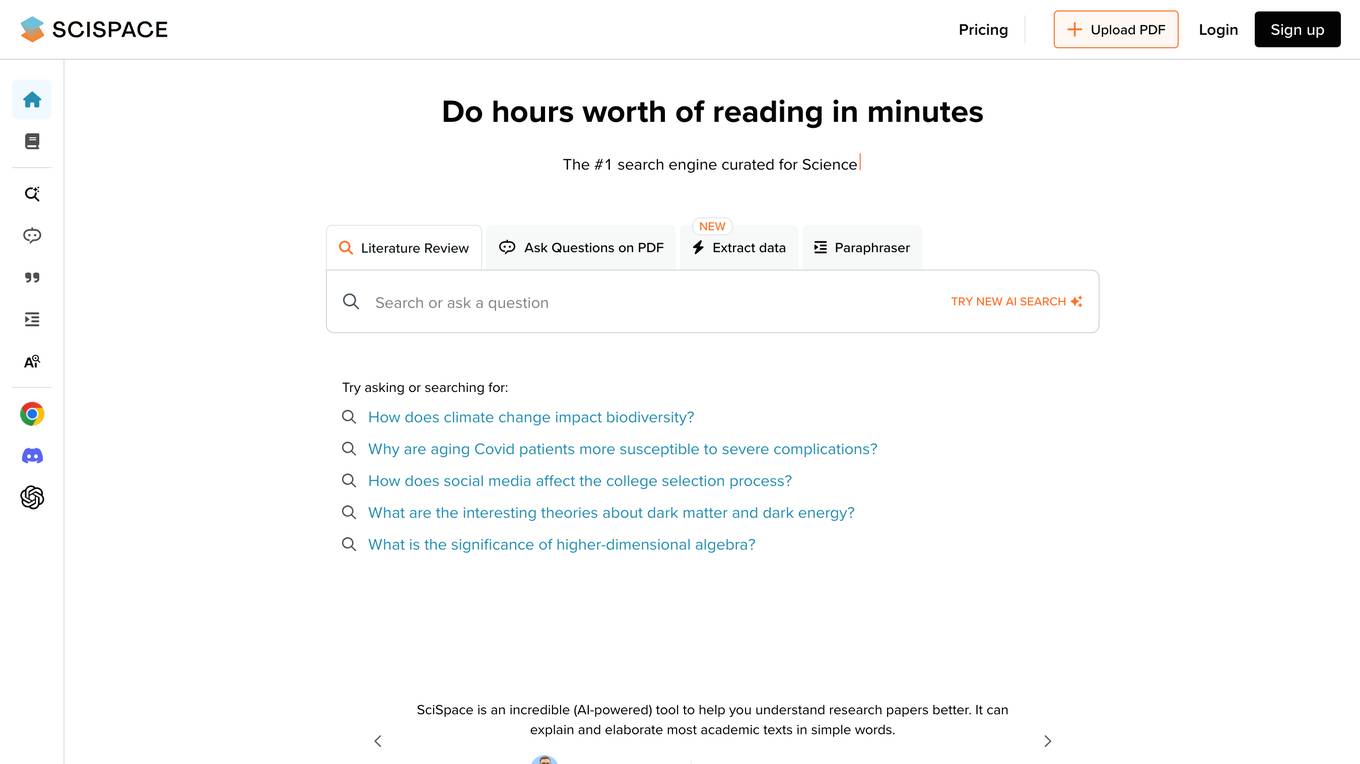
SciSpace
SciSpace is an AI-powered tool that helps researchers understand research papers better. It can explain and elaborate most academic texts in simple words. It is a great tool for students, researchers, and anyone who wants to learn more about a particular topic. SciSpace has a user-friendly interface and is easy to use. Simply upload a research paper or enter a URL, and SciSpace will do the rest. It will highlight key concepts, provide definitions, and generate a summary of the paper. SciSpace can also be used to generate citations and find related papers.
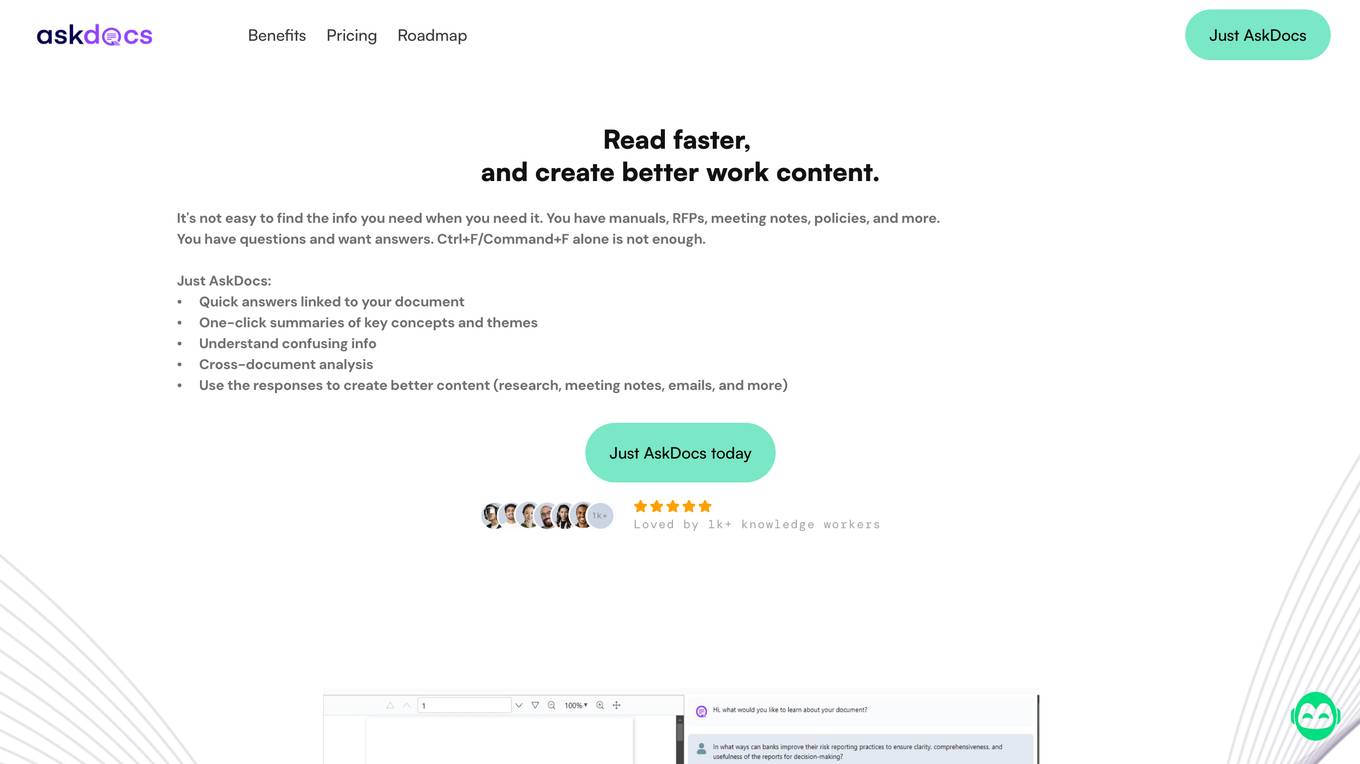
AskDocs
AskDocs is an AI-powered document assistant designed to help users read faster and create better work content. It offers cross-document analysis, quick answers linked to documents, one-click summaries of key concepts, and the ability to understand confusing information. With a focus on enhancing productivity, AskDocs is trusted by students, knowledge workers, and small businesses to streamline research, meeting notes, emails, and more. The tool supports various document types and provides instant answers directly linked to sources within the uploaded documents.
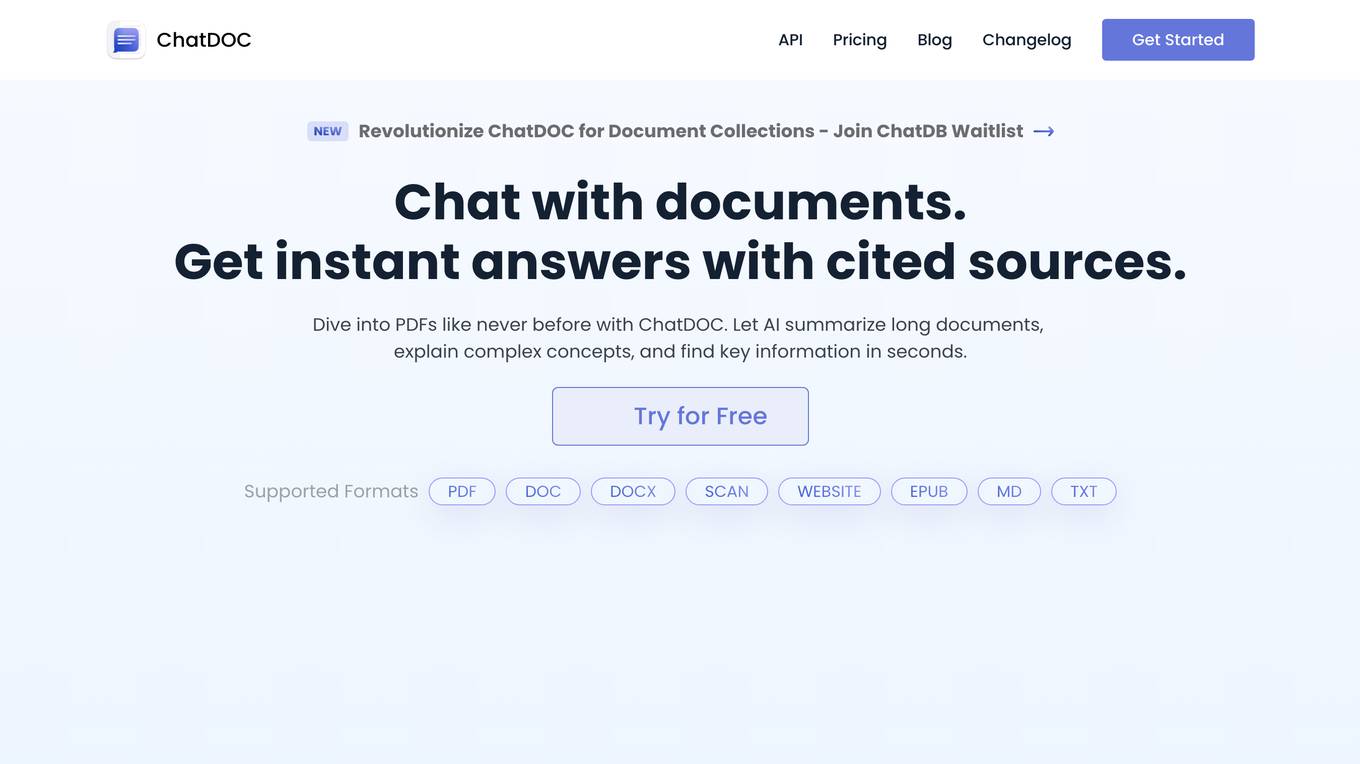
ChatDOC
ChatDOC is an AI-powered tool that allows users to chat with PDF documents and get instant answers with cited sources. It can summarize long documents, explain complex concepts, and find key information in seconds. ChatDOC is built for professionals and is used by over 500,000 global users.
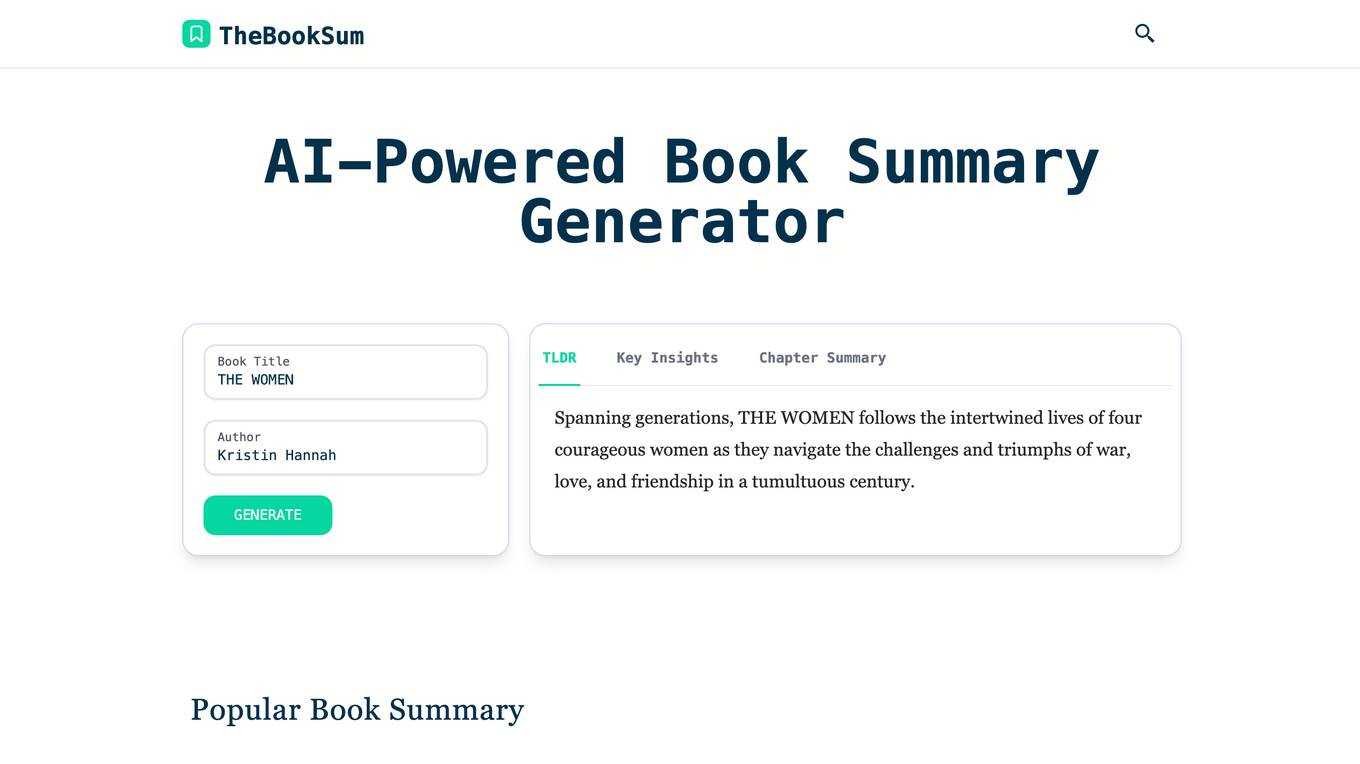
TheBookSum
TheBookSum is an AI-powered tool that provides instant book summaries. It helps users to quickly grasp the core of literature across genres efficiently and deeply. With just a click, users can input the title and author of the book they wish to summarize, and TheBookSum's AI will generate a detailed summary that captures the essence of the book. The summaries are divided into clear segments for easy understanding, and they extract and explain the main concepts and keywords from books, aiding in grasping central themes and terms. TheBookSum is free to use and can summarize a broad spectrum of books, ranging from fiction and non-fiction to technical guides and more.
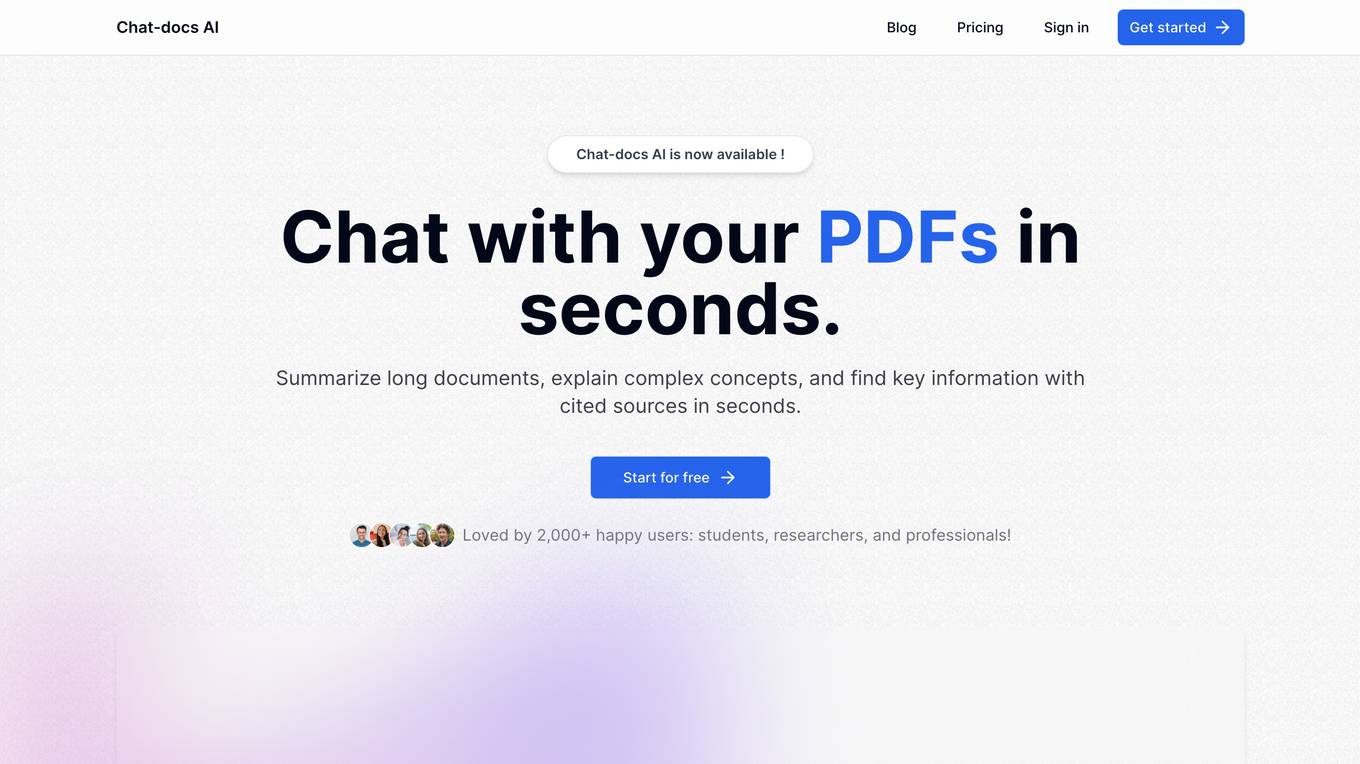
Chat-docs AI
Chat-docs AI is an innovative AI application that allows users to interact with PDF documents through natural language conversations. The tool leverages advanced artificial intelligence algorithms to summarize long documents, explain complex concepts, and find key information with cited sources in seconds. It transforms PDFs into intelligent entities capable of dialogue, making learning, research, and analysis more interactive and personalized. Chat-docs AI is designed to be intuitive, secure, and accessible to users from various backgrounds, revolutionizing the way individuals engage with textual content.

BLUF
BLUF is an AI-powered web page assistant that provides concise answers, summaries, and explanations of web pages. It helps users to quickly and easily get the information they need from any web page, without having to read through irrelevant or unnecessary content. BLUF is available as a browser extension for Chrome and Firefox, and it can be used to summarize or explain any web page with a single click.
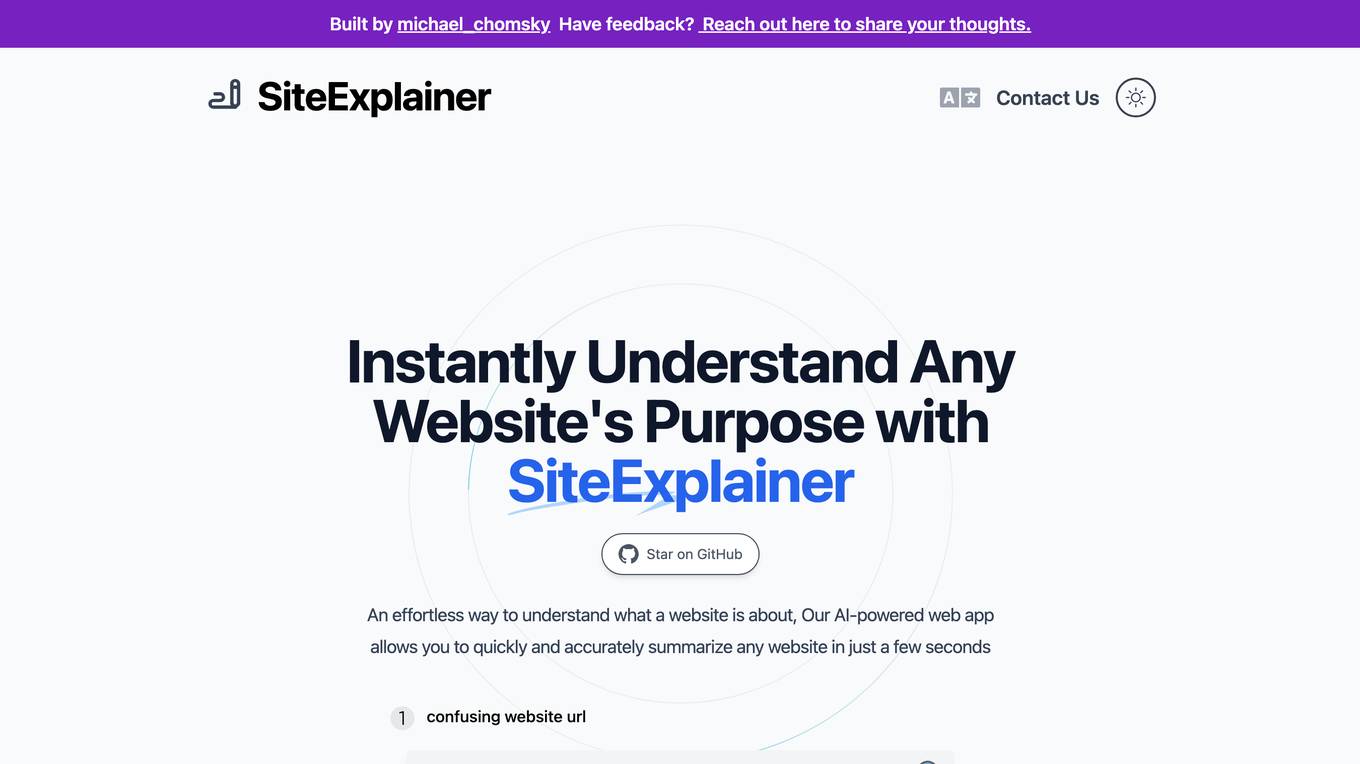
SiteExplainer
SiteExplainer is an AI-powered web application that helps users understand the purpose of any website quickly and accurately. It uses advanced artificial intelligence and machine learning technology to analyze the content of a website and present a summary of the main ideas and key points. SiteExplainer simplifies the language used on landing pages and eliminates corporate jargon to help visitors better understand a website's content.
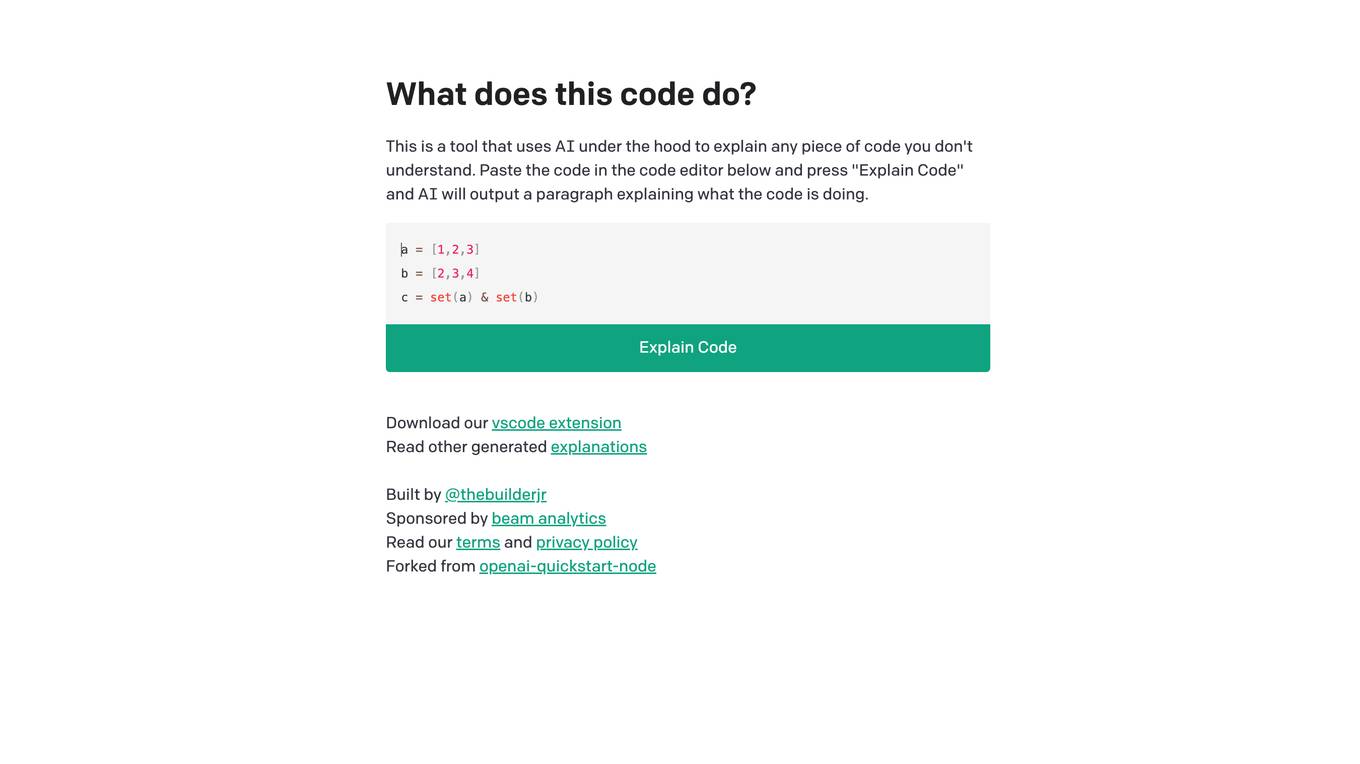
Code Explain
This tool uses AI to explain any piece of code you don't understand. Simply paste the code in the code editor and press "Explain Code" and AI will output a paragraph explaining what the code is doing.
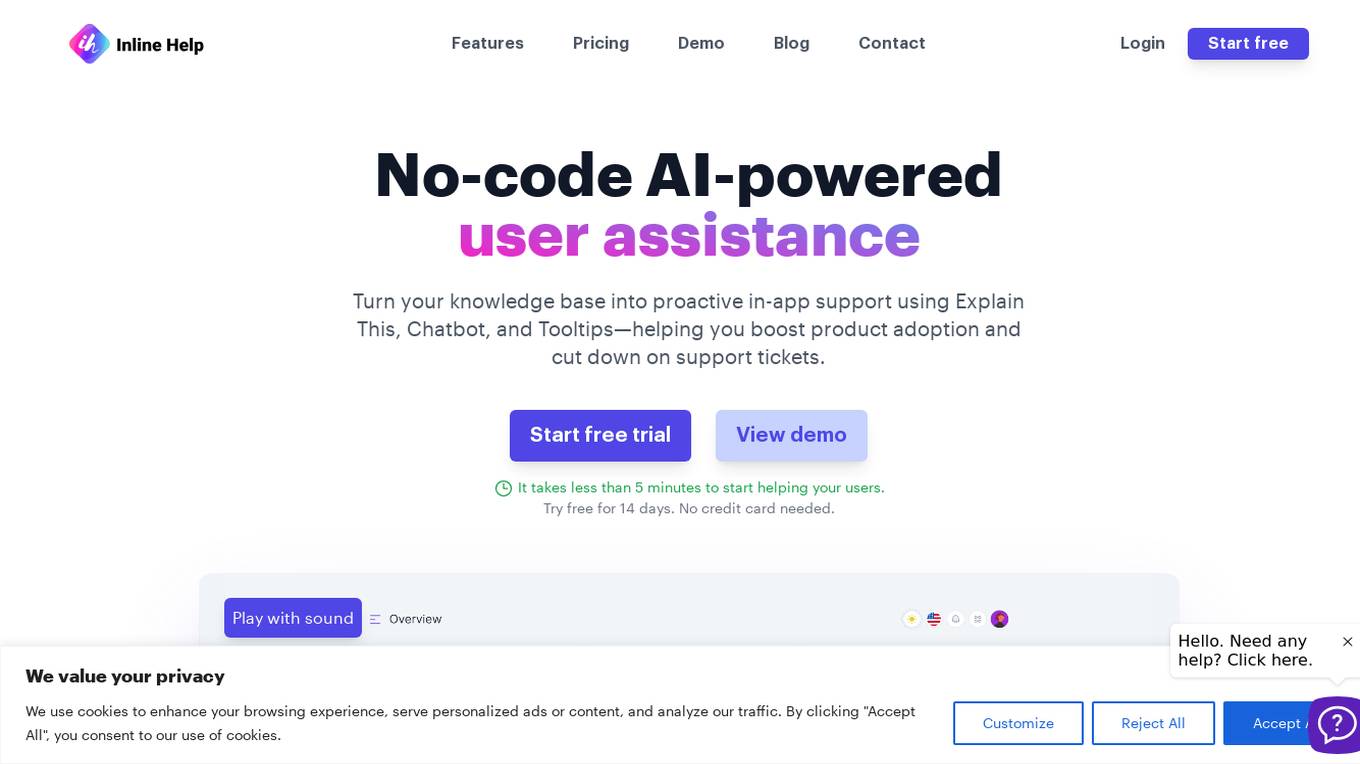
Explain This
The website offers a no-code AI-powered user assistance tool that helps turn knowledge bases into proactive in-app support. It features Explain This for in-app contextual mastery, Chatbot for real-time intelligent responses, Tooltips for effortless interaction, Widget for a centralized help hub, Knowledge Base for context-based empowerment, and Ticket Form for hassle-free issue reporting. The tool supports seven languages and aims to boost product adoption while reducing support tickets.

Whybug
Whybug is an AI tool designed to help developers debug their code by providing explanations for errors. By utilizing a large language model trained on data from StackExchange and other sources, Whybug can predict the causes of errors and suggest fixes. Users can simply paste an error message and receive detailed explanations on how to resolve the issue. The tool aims to streamline the debugging process and improve code quality.
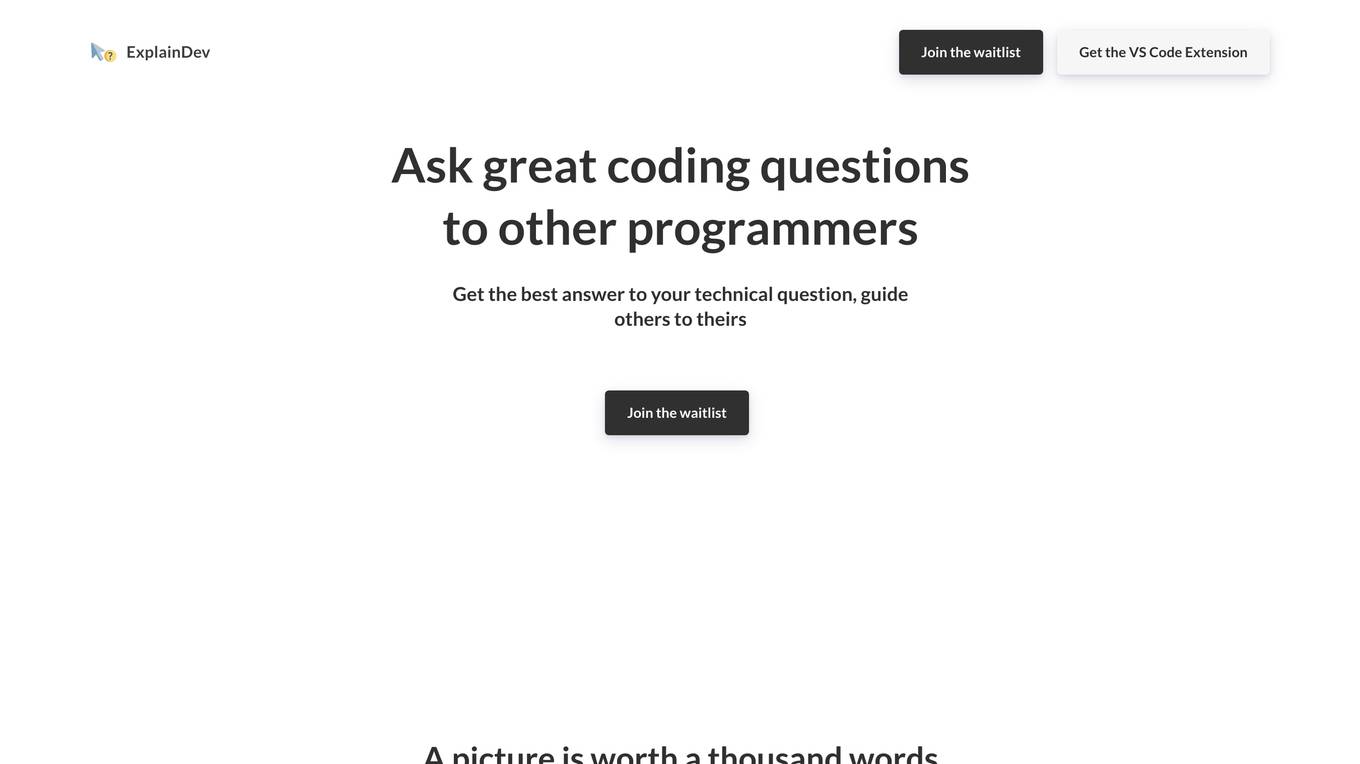
ExplainDev
ExplainDev is a platform that allows users to ask and answer technical coding questions. It uses computer vision to retrieve technical context from images or videos. The platform is designed to help developers get the best answers to their technical questions and guide others to theirs.
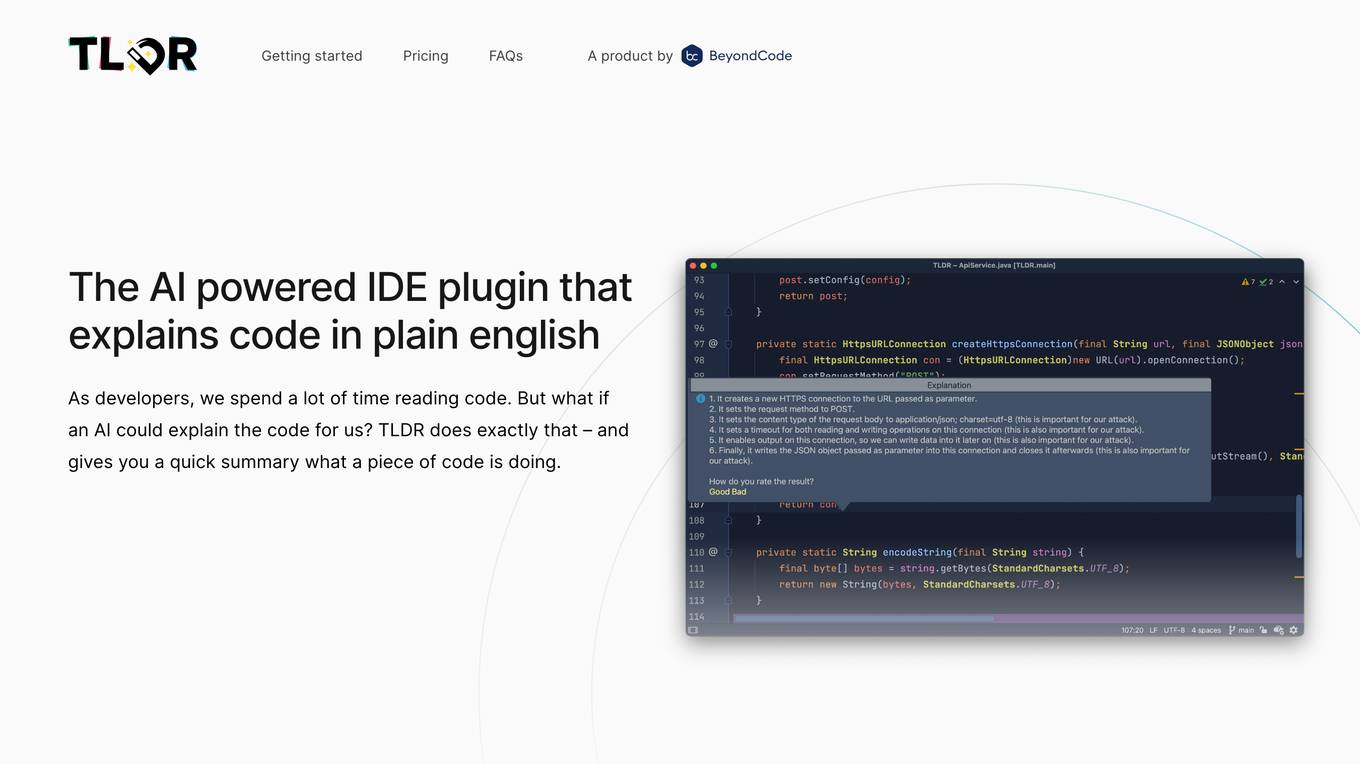
TLDR
TLDR is an AI-powered IDE plugin that explains code in plain English. It helps developers understand code by providing quick summaries of what a piece of code is doing. The tool supports almost all programming languages and offers a free version for users to try before purchasing. TLDR aims to simplify the understanding of complex code structures and save developers time in comprehending codebases.

Jam
Jam is a bug-tracking tool that helps developers reproduce and debug issues quickly and easily. It automatically captures all the information engineers need to debug, including device and browser information, console logs, network logs, repro steps, and backend tracing. Jam also integrates with popular tools like GitHub, Jira, Linear, Slack, ClickUp, Asana, Sentry, Figma, Datadog, Gitlab, Notion, and Airtable. With Jam, developers can save time and effort by eliminating the need to write repro steps and manually collect information. Jam is used by over 90,000 developers and has received over 150 positive reviews.
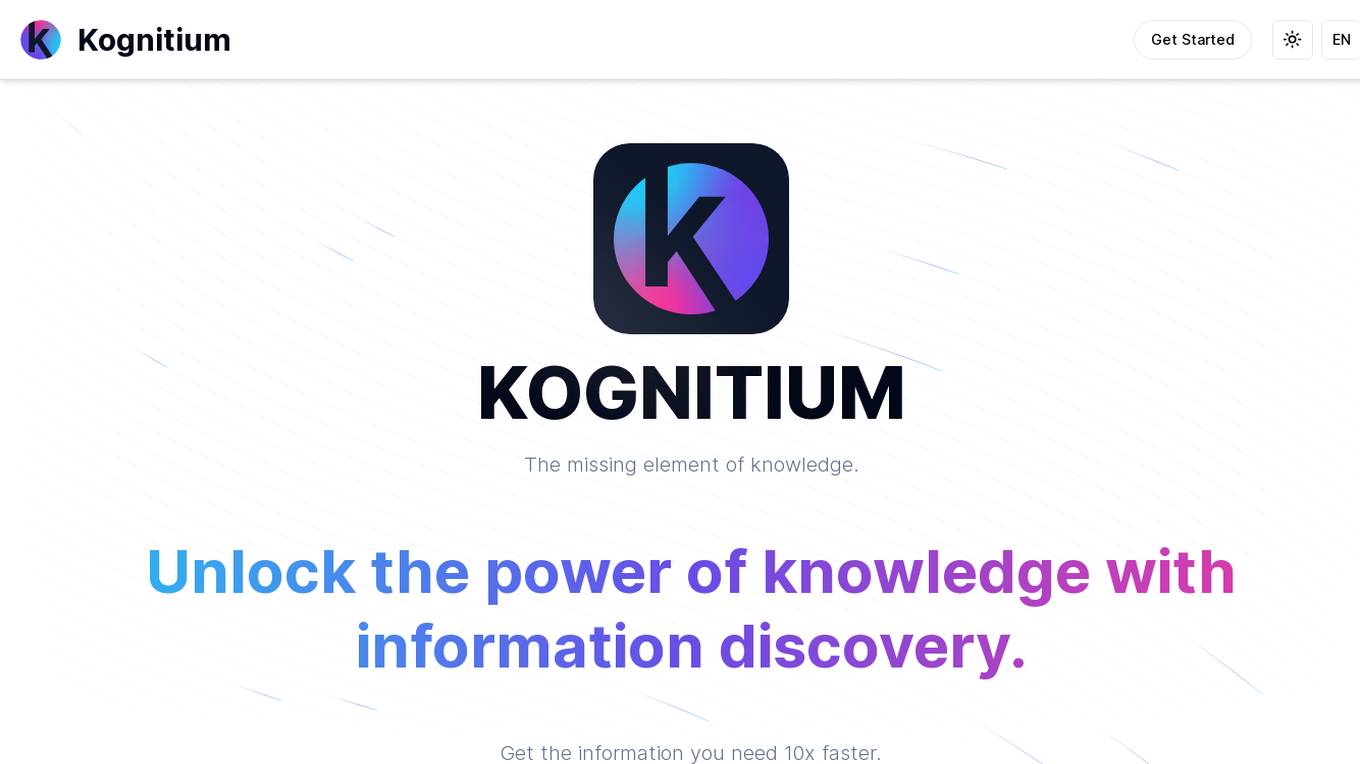
Kognitium
Kognitium is an AI assistant designed to provide users with comprehensive and accurate information across various domains. It is equipped with advanced capabilities that enable it to understand the intent behind user inquiries and deliver tailored responses. Kognitium's knowledge base spans a wide range of subjects, including current events, science, history, philosophy, and linguistics. It is designed to be user-friendly and accessible, making it a valuable tool for students, professionals, and anyone seeking to expand their knowledge. Kognitium is committed to providing reliable and actionable insights, empowering users to make informed decisions and enhance their understanding of the world around them.
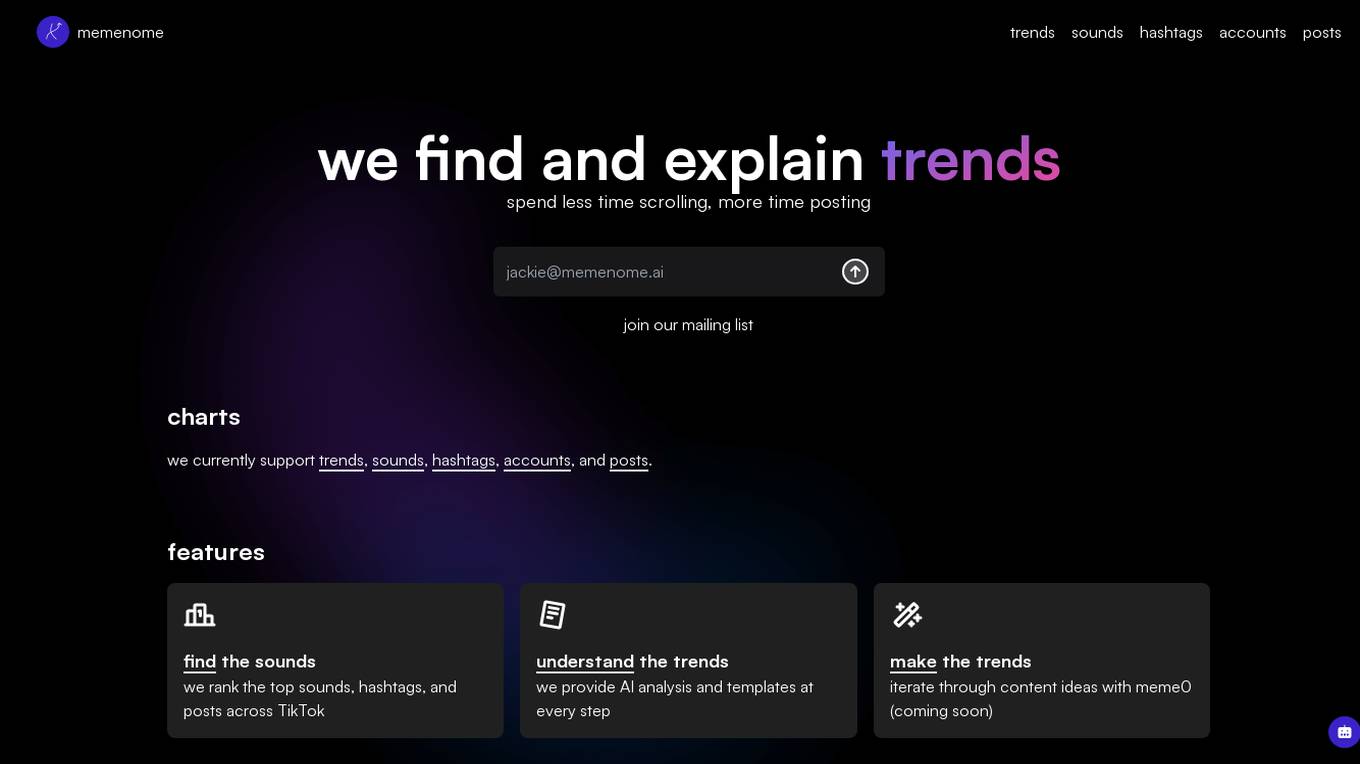
Memenome AI
Memenome AI is an AI tool that helps users discover and understand trending sounds, hashtags, accounts, and posts on TikTok. It offers features to find top sounds, hashtags, and posts, provides AI analysis and templates for trend understanding, and allows users to iterate through content ideas with Meme0. The tool aims to save users time by efficiently identifying trends and empowering them to create engaging content.
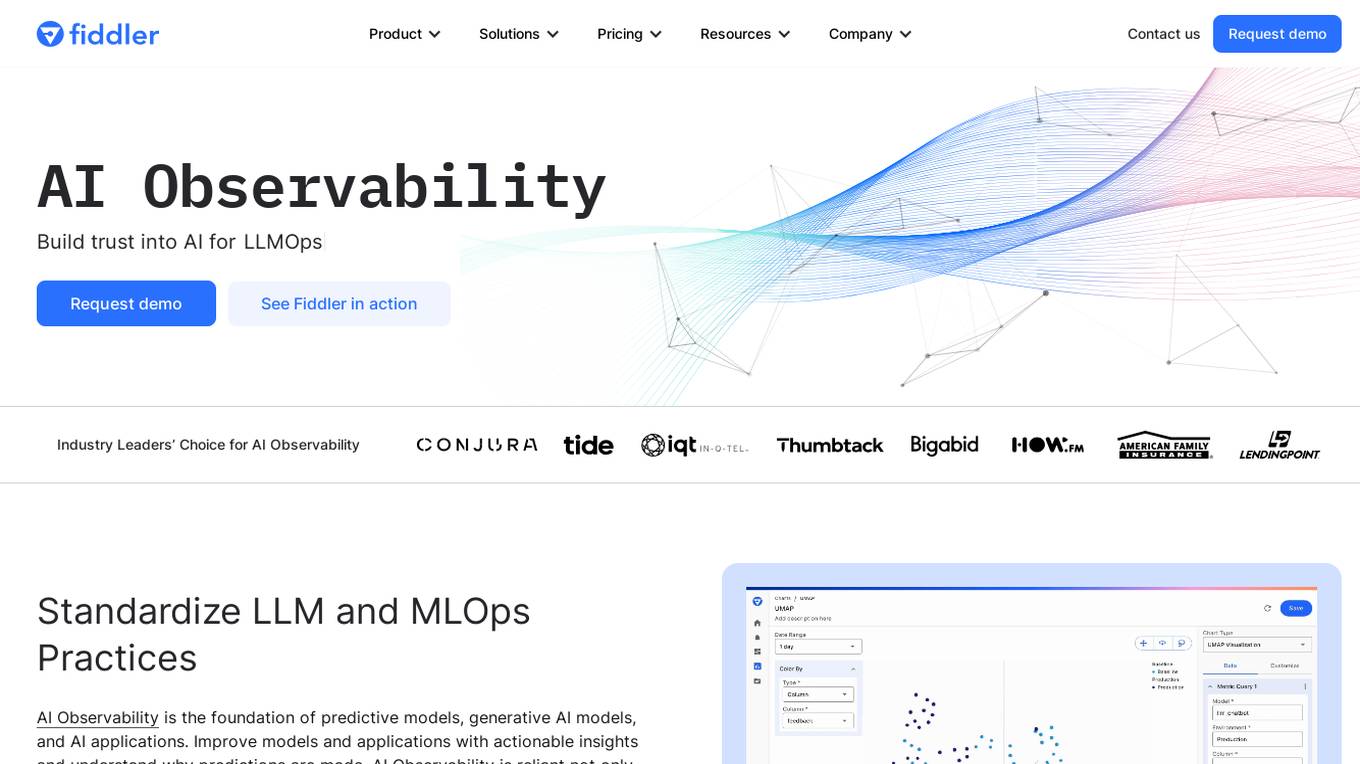
Fiddler AI
Fiddler AI is an AI Observability platform that provides tools for monitoring, explaining, and improving the performance of AI models. It offers a range of capabilities, including explainable AI, NLP and CV model monitoring, LLMOps, and security features. Fiddler AI helps businesses to build and deploy high-performing AI solutions at scale.
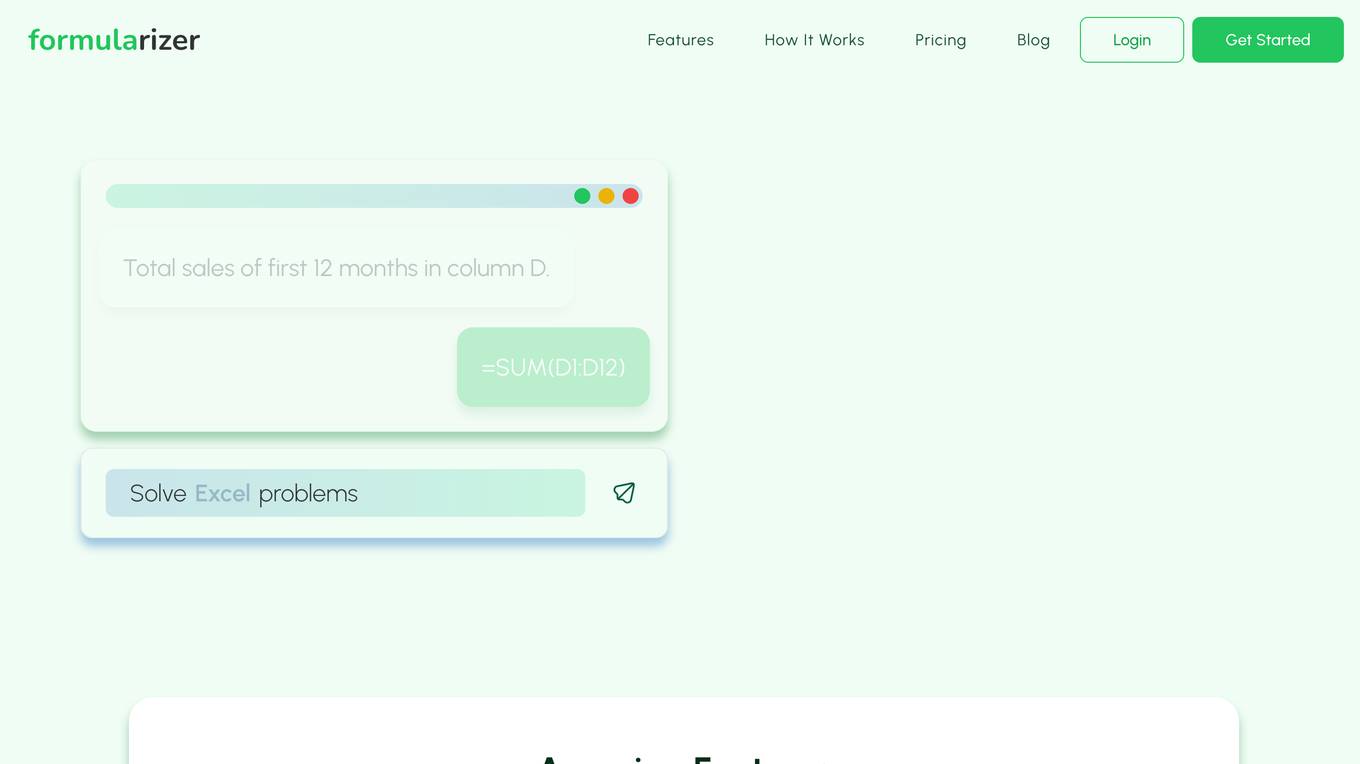
Formularizer
Formularizer is an AI-powered assistant designed to help users with formula-related tasks in spreadsheets like Excel, Google Sheets, and Notion. It provides step-by-step guidance, formula generation, and explanations to simplify complex formula creation and problem-solving. With support for regular expressions, Excel VBA, and Google Apps Script, Formularizer aims to enhance productivity and make data manipulation more accessible.
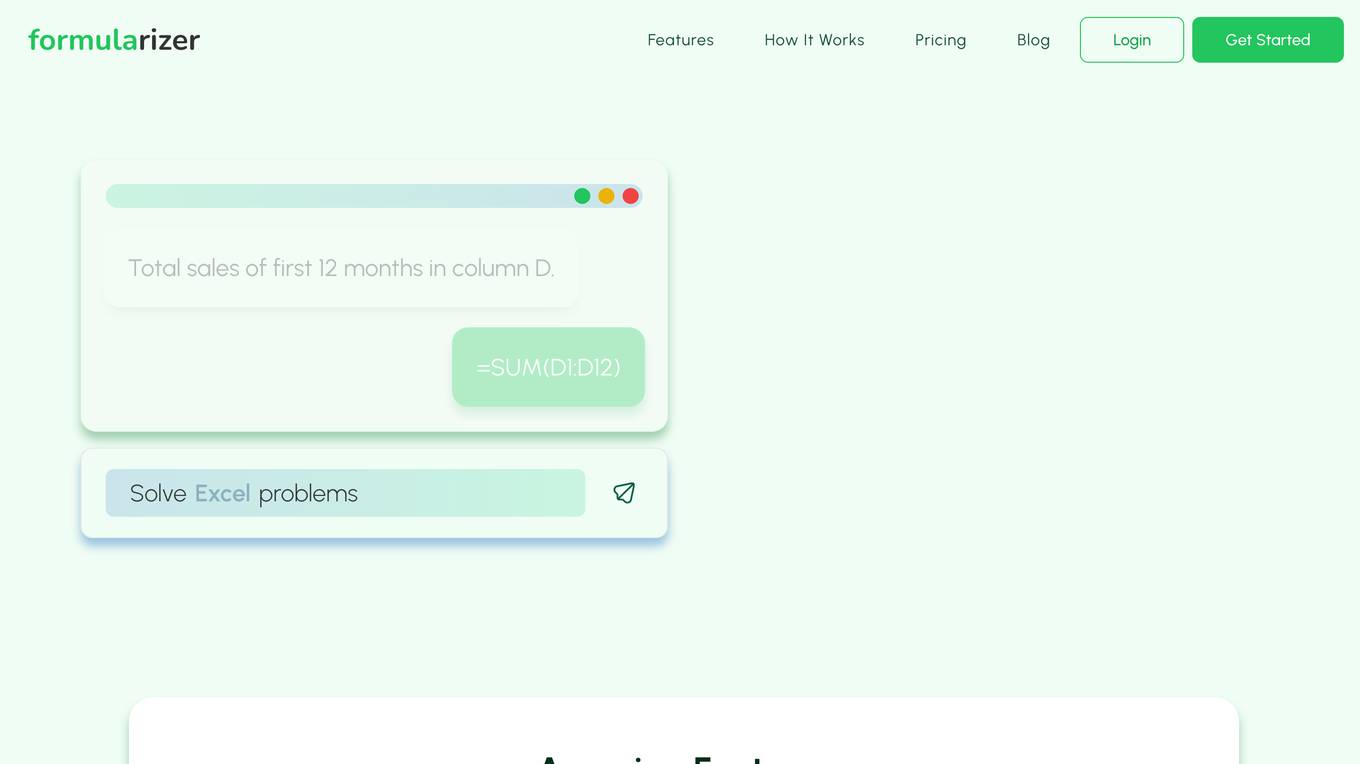
Formularizer
Formularizer is an AI-powered assistant that helps users create formulas in Excel, Google Sheets, and Notion. It supports a variety of formula types, including Excel, Google Apps Script, and regular expressions. Formularizer can generate formulas from natural language instructions, explain how formulas work, and even help users debug their formulas. It is designed to be user-friendly and accessible to everyone, regardless of their level of expertise.
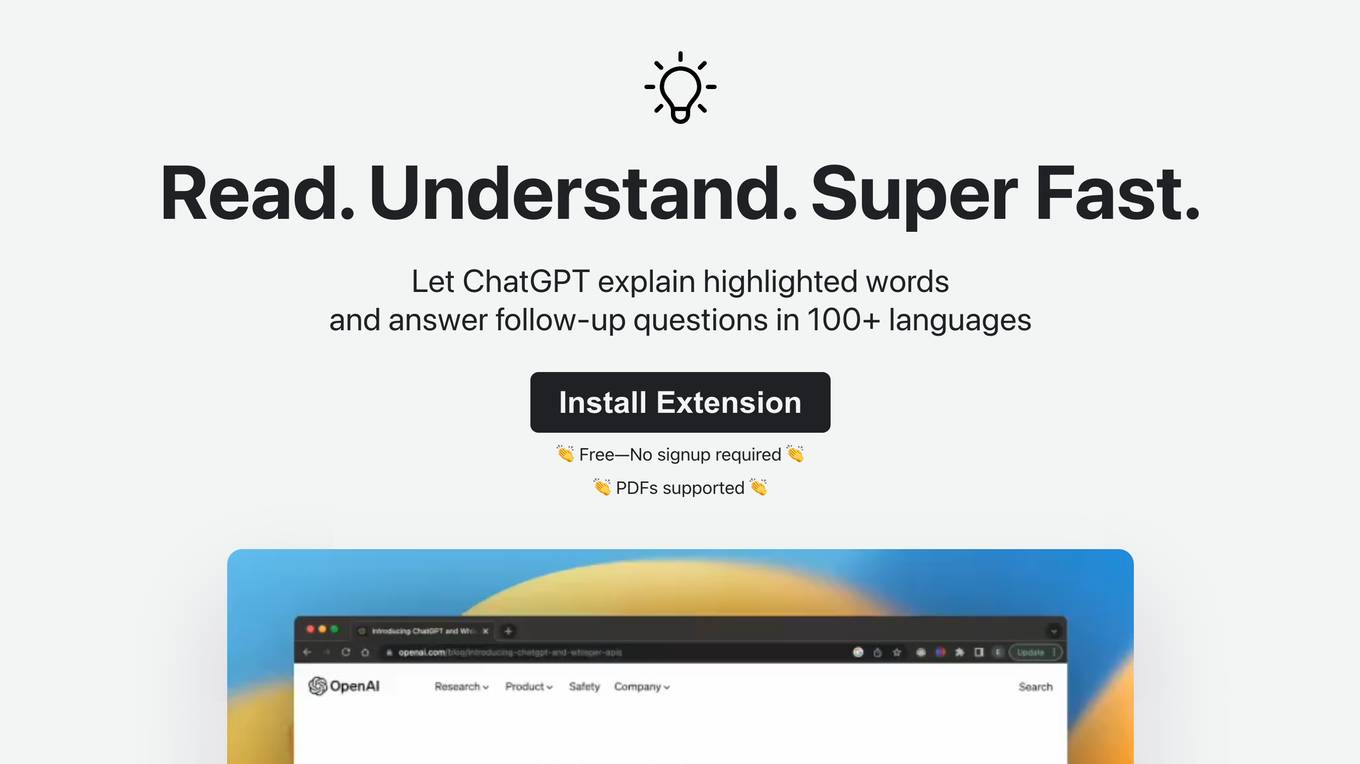
Tooltips.ai
Tooltips.ai is an AI-powered reading extension that provides instant definitions, translations, and summaries for any word or phrase you hover over. It is designed to enhance your reading experience by making it easier and faster to understand complex or unfamiliar content. Tooltips.ai integrates seamlessly with your browser, so you can use it on any website or document.
0 - Open Source AI Tools
20 - OpenAI Gpts

✨Lucia老师陪你拆解SSCI论文✨
历时几十小时反复打磨的英文论文无痛手把手拆解分析,结果如果不满意,可以提出要求更详尽举例解释😄 💡更多好用 gpts,可入微信群获取 微信号: lucia00112233,小红书可搜:学术巧学 Lucia

Verkiezingsprogramma Assistent
Specialist in politieke samenvattingen, moedigt stemmen aan
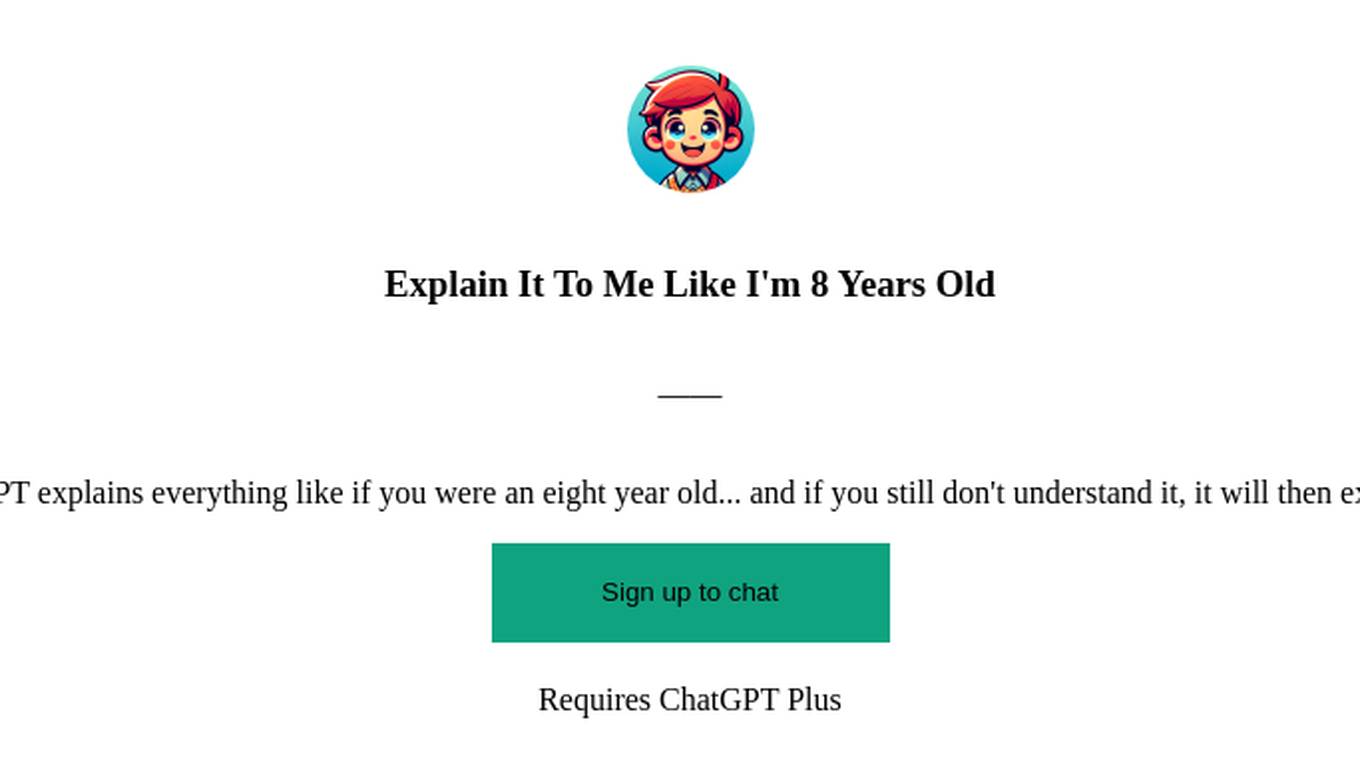
Explain It To Me Like I'm 8 Years Old
Inspired by The Office, This ChatGPT explains everything like if you were an eight year old... and if you still don't understand it, it will then explain it like you were a five year old.

BSC Tutor
I'm a BSc tutor, here to explain complex concepts and guide you in science subjects.
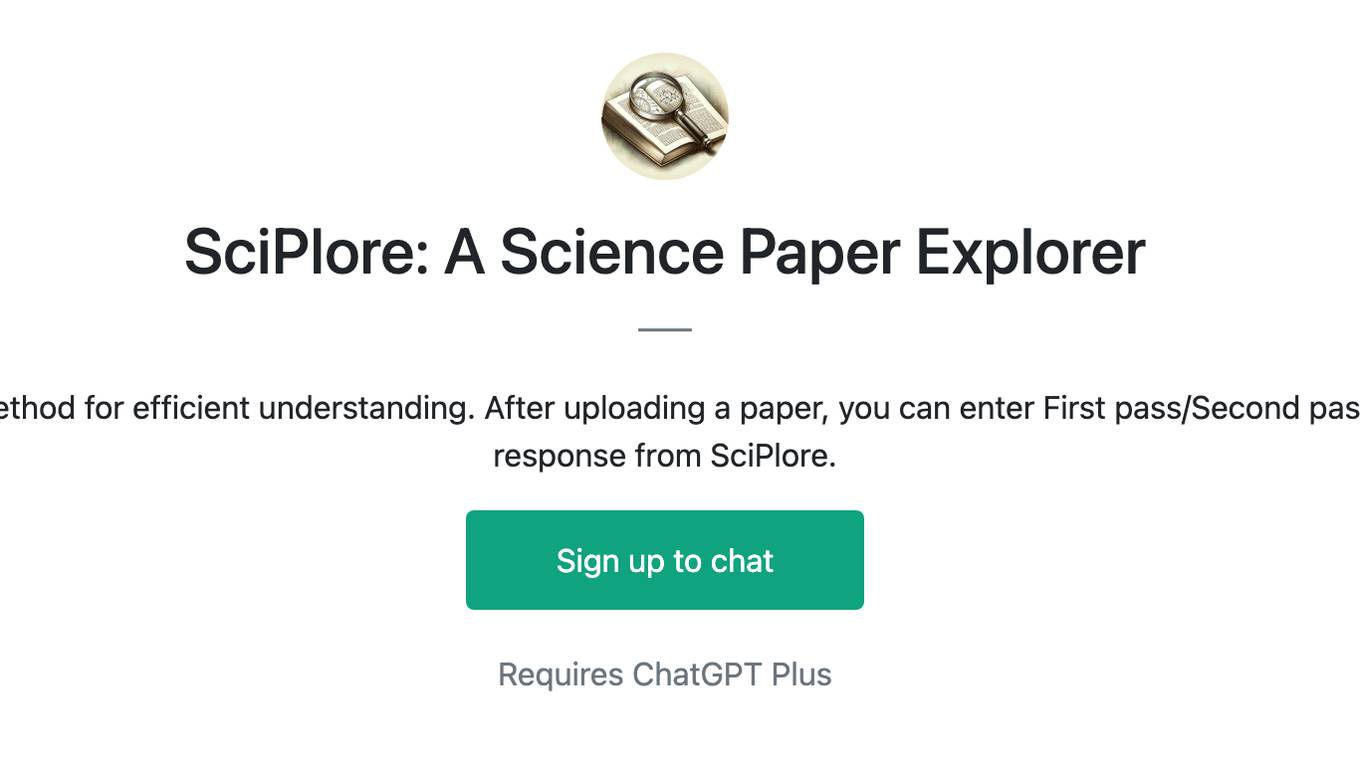
SciPlore: A Science Paper Explorer
Explain scientific papers using the 3-pass method for efficient understanding. After uploading a paper, you can enter First pass/Second pass /Third pass / Q&A to get different level of response from SciPlore.
